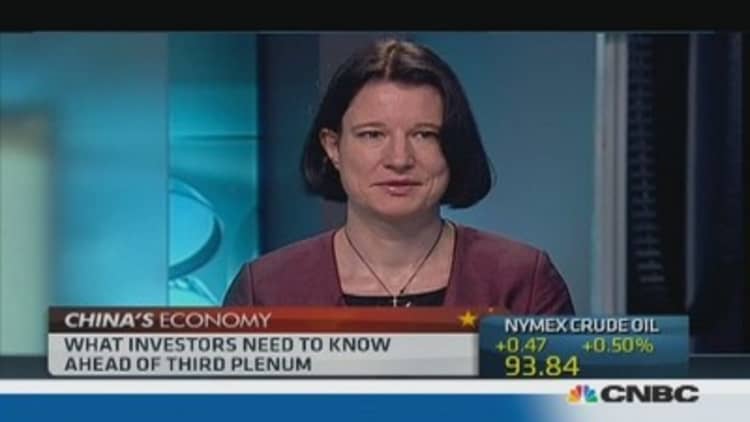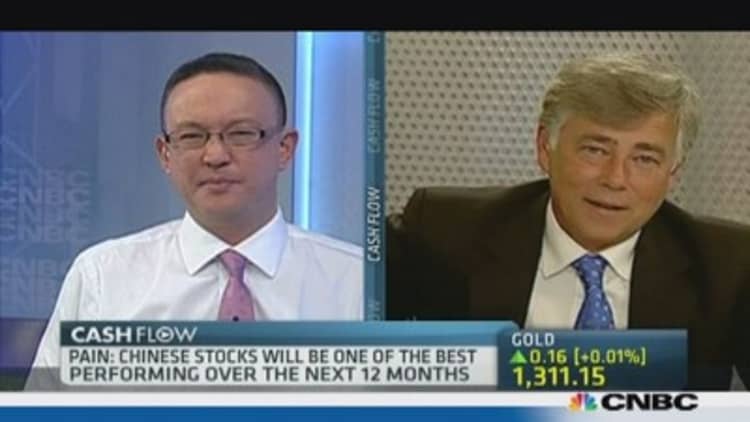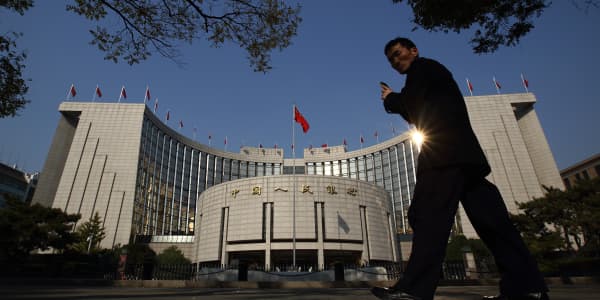With China expected to unveil a host of "unprecedented" economic reforms at its upcoming four-day policy meeting commencing this weekend, what will the Third Plenum mean for mainland equities that have struggled to gain traction this year?
According to market strategists, the highly-anticipated event, to be held from November 9 -12 in Beijing, is unlikely to be a watershed moment for the country's stock market.
(Read more: China faces tough balancing act as plenum looms)
Given that investors are already anticipating an ambitious reform agenda, surprises will be difficult to come by, say experts.
"From a market perspective, almost every stone is turned, we know what's coming. For the market, the event is going to be a near-term neutral," Gao Ting, chief investment officer, Wealth Management Research China at UBS told CNBC this week.

The Third Plenum – which refers to the third time that the new leaders of China lead a plenary session of the Central Committee – will produce a blueprint for long-term social and economic reforms.
While Yu Zhengsheng, China's fourth-ranked politician, recently promised "unprecedented" reforms at the plenum, many of the reforms likely to be announced have already been discussed extensively by Chinese officials, say analysts.
"The government has already initiated reforms in such areas as the financial system, taxation (replacing the business tax with value-added tax), government administration (streamlining certain approval rights), state-owned enterprises and monopolies (overhauling the railway system), and resource pricing (allowing market forces to set prices)," Yonghao Pu, regional chief investment officer, Asia-Pacific at UBS, wrote in a recent report.
(Read more: Will China's plenum dazzle or disappoint?)
"In contrast, the government may need more time to build consensus and more carefully plan details of the more contentious reform areas such as fiscal management, taxation (including the property tax), land use, the household registration or 'hukou' system, and the one-child policy," Yonghao added.
Additionally, details and timetables are likely to be released only at a later date, said Yonghao, thus investors could be disappointed.
"For markets, the question is no longer whether or not the government will carry out reform, but how fast and to what extent it will do so," said Yonghao.

Geoff Lewis, global market strategist at J.P. Morgan Asset Management says it's quite possible that the market will see profit-taking pressures following the Third Plenum. However, he believes would be a good buying opportunity for investors.
"Detailed policies and measures may take time to unfold and in any case will not start to contribute positive earnings impact until sometime later. So a post-plenum dip would be a buying opportunity," Lewis said.
(Read more: China premier warns against loose money policies)
Nicholas Ferres, investment director, global asset allocation at Eastspring Investments, says he is not trading the event.
"While a number of analysts have provided a general idea about what gets announced at the third plenary, I have no idea how the market will interpret these announcements," he said.
"The proposed reforms are likely to be positive for China in the medium term, but they may not be positive for the listed sector in aggregate. There may be select companies that benefit from liberalization, new markets or trade. From a macro perspective, we prefer to stand aside," he added.
While the stock market valuation appears attractive, the price-to-earnings multiple is low due to the banking sector, which may well be a value trap due to future under reported loan losses, Ferres said.
The , which is trading at a price-to-earnings ratio of 9.7, is down 6.5 percent year-to-date.
—By CNBC's Ansuya Harjani; Follow her on Twitter: @Ansuya_H





